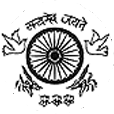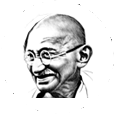‘A FORCE MORE POWERFUL’ FILMS
‘A Force More Powerful’ is a six part series which tells one of the 20th century’s most important and least known stories – how non violent power overcame oppression and authoritarian rule. In South Africa in 1907, Mohandas Gandhi led Indian immigrants in a non violent fight for rights denied them by white rulers. The power that Gandhi pioneered has been used by underdogs on every continent and in every decade of the 20th century, to fight for their rights and freedom. Reviewing a century often called the most violent in human history, this powerful series is the story of millions who chose to battle the forces of brutality with non violent weapons in India, Denmark (under Nazi occupation), USA, South Africa, Poland and Chile – and won.
This film series, produced by York Zimmerman Inc and WETA, Washington D.C., with funding from the Albert Einstein Institute and the Arthur Vining Davis Foundation, has been telecast nationwide on the US Public Broadcasting System. It has been written and directed by Steve York and narrated by Ben Kingsley. Each film is approximately of 30 minute duration. Brief details of each of them are given hereunder.
To order this film series please call or email Ms Miriam Zimmerman, whose coordinates are as under :
Miriam Zimmerman, Managing Producer
York Zimmerman Inc.
2233 Wisconsin Avenue NW #502
Washington, DC 20007
Tel : (202) 337-3291 F (202) 337-0614.
Email : mzimmerman@yorkzim.com
INDIA : ‘DEFYING THE CROWN’
In 1930, Indian nationalists were impatient with British foot dragging on promises to move India toward self – rule and appointed Mohandas Gandhi to lead “the final struggle for freedom”. Relying on the non violent methods he had developed in South Africa, Gandhi led a 240 mile march to the sea coast, where he made a handful of sea salt and invited his countrymen to do likewise, in open violation of the British monopoly on salt production. Millions followed his example. His campaign of civil disobedience swept the country, forcing the British Viceroy to admit that his regime was losing control. Gandhi’s actions shattered India’s consent to foreign rule and set the country on the road to independence, which came in 1947. To future generations, Gandhi gave the weapon of non violent resistance.It is being continuously refined and developed.
DENMARK : LIVING WITH THE ENEMY
When Adolph Hitler forces invaded Germany on April , 1940, the Danish government knew that a military response would be suicidal for Denmark’s small armed forces. Besides, the Germans said they had come as friends, not conquerors – Danish laws and government would remain as long as Denmark met German demands for food and raw material. Danish leaders decided to accept Germany’s promises at face value – and adopted a strategy of resistance disguised as collaboration. By delaying and obstructing German operations, Danes systematically undermined the invader’s objectives. In the meantime, an underground resistance developed which carried out sabotage, organizing strikes and rescuing all but a few hundred of Denmark’s seven thousand Jews. In the end, Denmark did not defeat Germany, but it survived – with its people, infrastructure and institutions intact – and it contributed more to the war effort through nonviolent resistance than Dansih arms ever could have.
NASHVILLE – “WE WERE WARRIORS”
In Fall 1959, Rev. James Lawson offered free evening classes on non violent action to university students in Nashville, Tenesseee with the goal of training and preparing them to desegregate the city’s business district. Lawson had spent three years in India learning about Mohandas Gandhi. Now he guided his Nashville students in a study of both the history and practice of non violent methods – to prepare them for their “sit ins” at down town stores. Lawson’s training helped the students endure the beatings and arrests, and lead a boycott, as they brought their struggle for civil rights to the steps of Nashville City hall and ultimately to the forefront of national attention – and won!
SOUTH AFRICA : “ FREEDOM IN OUR LIFE TIME”
A black “uprising” against the injustice of apartheid – South Africa’s system of racial discrimination – began in 1984. Many young blacks knew they could not win by violence. They therefore organized at the grass roots – taking control of their own townships and making their grievances known to the White population. In the southern city of Port Elizabeth, a 27 year old youth organizer, led a boycott of white owned businesses in June 1985. By with holding their buying power the black population drove a wedge between the white business community and the apartheid regime. A second boycott began in 1986, when the regime failed to act on the boycotters’ political demands. A nationwide state of emergency was declared was imposed and continued for three years, making repression the main business of the regime and signaling that Apatheid was collapsing. In 1989, a new president, F.W.De Klerk released Nelson Mandela from the jail where he had been imprisoned for 27 long years, and negotiated a new constitution with him, which guaranteed equal rights for all South Africans. In 1994, Mandela became president in South Africa’s first democratic elections.
CHILE : “DEFEAT OF A DICTATOR
General Augusto Pinochet seized power in a 1973 military coup.He banned political parties, closed newspapers, and spread fear throughout the country ; political assassinnations, disappearances, torture and imprisonments became common. In 1983, an economic crisis pushed many Chileans to dare oppose the dictatorship for the first time. Copper miners called for a non violent national protest day against Pinochet, unleashing pent up opposition in a wave of monthly protests. Mainstraem opposition parties re-emerged after ten years underground and supported by the Church, staged frequent non violent demonstrations. By 1987, the democratic opposition realized that the constitution Pinochet wrote in 1980 called for a plebiscite. This provided a chance to people to vote yes or no on another eight years of military rule. Isolated and over confident, Pinochet had assumed he would win if people were given a choice. But after years of underground organizing, the opposition was prepared, and ran a bold, future oriented “NO” campaign. On October 5th, 1988, Pinochet was voted out.
POLAND : “WE HAVE CAUGHT GOD BY THE ARM”
In August 1980, workers at the Gdansk shipyard went on strike. Their main demand, free trade unions, was unprecedented in a country where Communist party supremacy did not allow the existence of any independent organizations. Lech Walesa, a fearless 37 year old electrician, was the chief negotiator for the worker. He avoided the mistakes of earlier strikes by maintaining strict non violent discipline – and by occupying their shipyard, to deter a violent crackdown by authorities. The strike quickly spread to other shipyards throughout the country, and magnifyied their leverage.
Their persistence paid off as the government granted most of their demands, A new union, named “Solidarity” was born. However, A year and a half later, the government banned the union and imposed martial law. Solidarity continued its work underground until 1989 when the Communist government, confronted by a new wave of strikes had no option but to request Lech Walesa to intervene to settle them. Solidarity re-emerged as a revitalized political force and won decisively in Poland’s first free parliamentary elections in sixty years, taking power as the ruling party before the end of that year.

